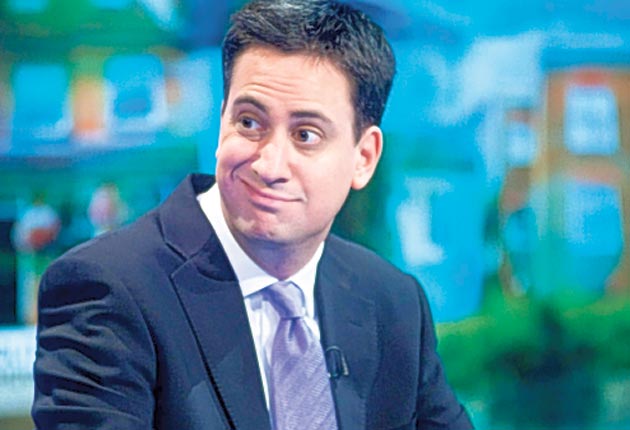Amy Jenkins: An obsession with extremes blinds us to those in the middle

Your support helps us to tell the story
From reproductive rights to climate change to Big Tech, The Independent is on the ground when the story is developing. Whether it's investigating the financials of Elon Musk's pro-Trump PAC or producing our latest documentary, 'The A Word', which shines a light on the American women fighting for reproductive rights, we know how important it is to parse out the facts from the messaging.
At such a critical moment in US history, we need reporters on the ground. Your donation allows us to keep sending journalists to speak to both sides of the story.
The Independent is trusted by Americans across the entire political spectrum. And unlike many other quality news outlets, we choose not to lock Americans out of our reporting and analysis with paywalls. We believe quality journalism should be available to everyone, paid for by those who can afford it.
Your support makes all the difference.There was a time in the early part of the last century when the term "middle class" was commonly used as an insult.
The working class and the aristocracy were united in their disdain for those who were neither rich nor poor, neither posh or the salt of the earth – but tediously middling. To be middle class was to be a shopkeeper or the like; you were petty; you were bourgeois; you were probably small-minded. But now that the middle class has expanded so exponentially, creeping both upstairs and down, the term is quite neutral again (unless in the mouth of Julian Fellowes) and there seems to be a lot of confusion about what it actually means.
Yesterday morning on Radio 4's Today programme, Ed Miliband attempted to stick up for the "squeezed middle" and was given a grilling by John Humphrys about who exactly the squeezed middle is. Miliband said it was those who earned around the average income of £26,000 a year but also those who earned a bit more and those who earned a bit less. Humphrys leapt on his vagueness and derided him for attempting to represent 90 per cent of the population.
But why shouldn't Miliband do just that? We're so preoccupied with extremes in this country. Humphrys started by questioning Miliband about the 50p tax rate on those earning over £150,000. Miliband said he'd keep it in a half-hearted kind of way, but why wasn't he more bullish? Only 300,000 people in the entire country pay the 50p rate. That's a lot less than 1 per cent of all tax payers. Humphrys may as well have asked him about a tax on those who keep pink rabbits. At the other end of the scale, there are about five million people on out-of-work benefits of one sort or another. This is a much more substantial figure but still well under 10 per cent of the working population.
So Miliband has a point then when he talks about 90 per cent in the squeezed middle. The 18 millionaires in the Cabinet are as much of a social anomaly as the so called "benefit scroungers" or the people Howard Flight thinks will "breed" in order to swindle the state for a welfare pittance. They are all, at both ends, very rare animals indeed – and it's those in the middle who suffer as the tiny percentage at the top talk an alarmist storm about the tiny percentage at the bottom while getting down to the real job of destroying the public services that are used by everyone in between.
Part of the trouble is that we don't have the right terminology for all of this – witness Miliband struggling to define terms on the Today programme. "Middle class" no longer does what it says on the tin. When I was at a London comprehensive school in the late Seventies, I felt that there was absolutely no doubt as to what middle classness was all about. Middle classness defined my very existence. I imagine it was a bit like being black in the Fifties. My girlfriends and I ate at the chip shop every lunch time in an attempt to fit in (and also because we liked chips) – but we were let down by a tiny group of Hampstead dwellers who got their lunch from a local health food store. They ate bean stews and other such formidably nutritious things. The store displayed melons outside on the street and so all the middle-class kids were known as melons – and, boy, were we never allowed to forget our melon-ness.
But now that so many of the people who used to work in factories work at desks – and so many people have mortgages and send their kids to university – it's simply not possible to limit the term middle class to those who eat beans (cannellini rather than baked, that is). Surely we need a new lexicon for all of this. The poshest bachelor in the land will next year marry someone with "middle" in her name. I rest my case.
Join our commenting forum
Join thought-provoking conversations, follow other Independent readers and see their replies
Comments